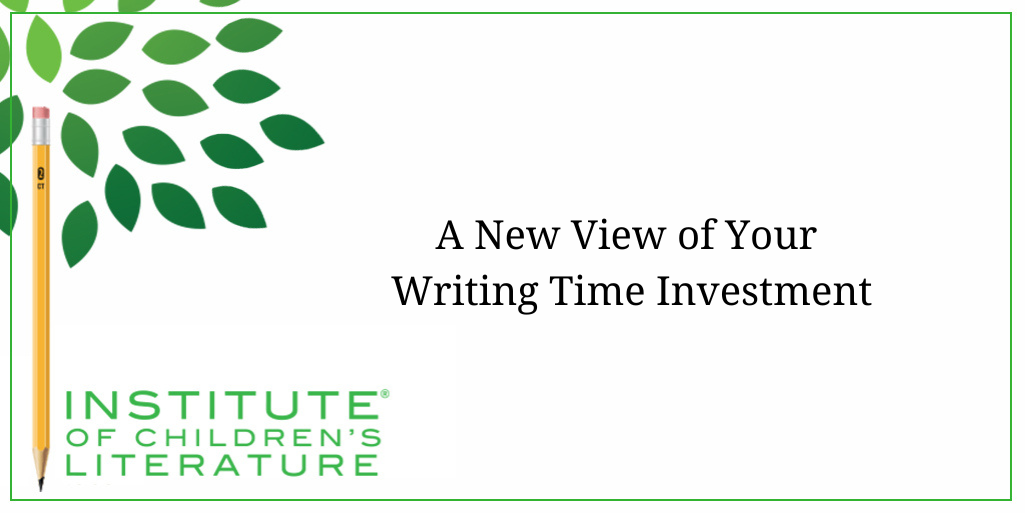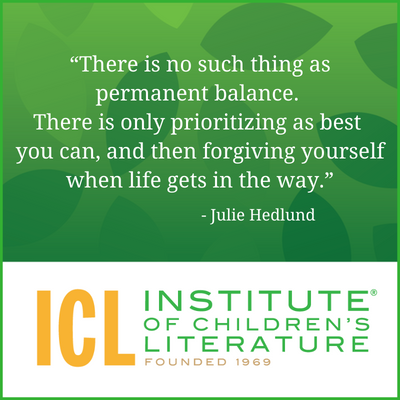
5 Ways Writers Can Prep for 2025 Goal Setting
Before we roll on to the new writing year, let’s harness our optimism for the blank slate before us and prepare for our 2025 Goal Setting just for writers.

We teach our students how to write and get published!
View our Course Catalog >
In society, we tend to respect the astonishing hours a star athlete puts into practice, improvement, and growth in the work of becoming good at their sport, but what about writers and their writing time? We know that a professional athlete or an Olympian comes out of a mix of talent and seriously hard work. And the hours of hard work impress nearly as much as the eventual success. We respect these athletes for making the commitment to turning natural talent into excellence through hard work that took years.

These kinds of things play a part in how difficult it can be for writers to give themselves permission to learn and grow and practice (and how incredibly difficult it can be to get others on board for the process.) And it is frustrating.
I’ve written a great many books for which I’ve been paid. I’ve also written quite a few stories that no one paid me for because they simply weren’t good enough for publication. I didn’t realize they weren’t good enough at the time. I was excited by the stories and the ideas and the act of creating them, and I was proud of them too. They all had something quite good about them, but they were also so deeply flawed that no one would possibly publish them. I could, of course, have self-published, though I’m glad I didn’t.
These flawed creations sit quietly on my hard drive where they don’t embarrass me. They are proof that the road to becoming a writer has some potholes and it’s not hard to fall into one. Still, even those potholes had value. I learned from them. And everything I write today is built on what I learned doing the work of writing.
When I was writing things regularly that didn’t get published, I found the process educational, but also disappointing and disheartening. I had bought into the notion that it shouldn’t take that long to succeed. I had talent. People said I had talent. Even editors who turned my work aside said I had talent. But talent is really only ease of learning.
Talent meant I had the potential to learn to write better, if I was willing to do the work to get there. Since I’m a tiny bit lazy by nature, it might be good that I didn’t know that. I might have wandered off and done something else instead. But if I could have accepted that talent isn’t a magic key, I might have knuckled down to do the work and suffered a lot less misery when the work failed. If you’re reading this and you’ve been told you have talent, that’s fantastic. It means that if you do the work to improve and put the writing time practice in, you’ll almost certainly succeed eventually.
Writing can be joy. Writing can be fun and exciting. Writing can be frustrating and hard. And the same project can be all of these things at different points.
Thomas Mann is attributed with the quote, “a writer is a person for whom writing is more difficult than it is for other people.” Writing is easy to think about doing but writing and sticking with it to the end is considerably harder. A writer is one who puts in the work. If you’re participating in National Novel Writing Month, or if you’re simply a writer working on something you have high hopes for, you’ll run into difficulties at some point and you’ll need to decide if you want the end result enough to stick with it. My suggestion is to keep working.
During the idea phase, thinking about the book can be a joy. You are eager to get started, and you want to do it. Then sometimes you can hit a hard spot right then. It’s hard to know where to start and what your first lines should be. Sometimes writers get derailed right there, thinking their first lines have to be perfect. And in the final draft, yes, your opening pages need to be amazing. But not when you begin the writing.
When you begin the writing, you’re simply opening a door and stepping in. It’s going to feel weird and awkward and exciting and new. Go with it. Explore and enjoy because these are the happy days. Usually, once you get that door open and some words on the page, you’ll hit that speedy part, the fun and exciting writing. During this time, it’s easier to find time for writing because you want to get to the page, and you’ll elbow aside all the other tasks that want to take up your time.
Deep in the weeds of a book (or sometimes in the rough days of revision), the work gets hard. You run smack into whatever weaknesses exist in your writing skills. You’re likely to struggle. This is the point where time management gets harder because the work isn’t calling you much. You’re not in love with the project anymore. And it can be tempting to let all the other things take your time instead. Besides, you may be starting to worry that this project isn’t going to be as great as you’d hoped.
And you know what? It might not be. But you’ll never know if you don’t stick with it, because those this-isn’t-working-out feelings are often a lie. Many artists will tell you that art goes through an ugly phase when it would be easy to abandon it, but success requires not giving up.
Not every piece of art works.
Not every book written is going to be publishable.
But you flatly cannot win if you quit.
Know that even if this turns into a learning piece, a practice piece, or an example of time spent honing your skills, it’s still valuable. Because success takes work and practice and learning, and that takes time.
Who knows, maybe you’re a bestselling writer in training. Maybe you’re doing the work today to prepare yourself to write a Newbery Award Winning Book in the future. Maybe you’re learning the skills to produce a book that changes lives. You’ll never know if you don’t do the work to find out.
Accept the hard work, just as the Olympian accepted all the hard work for reaching for success, because once you accept it, you’ll do a much better job of making time for it and sticking with it. And in the end, you’ll be so very glad you did.
With over 100 books in publication, Jan Fields writes both chapter books for children and mystery novels for adults. She’s also known for a variety of experiences teaching writing, from one session SCBWI events to lengthier Highlights Foundation workshops to these blog posts for the Institute of Children’s Literature. As a former ICL instructor, Jan enjoys equipping writers for success in whatever way she can.

Before we roll on to the new writing year, let’s harness our optimism for the blank slate before us and prepare for our 2025 Goal Setting just for writers.

Writers can be thin-skinned when it comes to getting feedback on their work. Let’s look at 4 ways to positively deal with constructive criticism!

Rejection is part of the territory when it comes to being a writer. Today we offer reflection for writers to help redirect your efforts after a rejection.
1000 N. West Street #1200, Wilmington, DE 19801
© 2024 Direct Learning Systems, Inc. All rights reserved.
1000 N. West Street #1200, Wilmington, DE 19801
© 2024 Direct Learning Systems, Inc. All rights reserved.
1000 N. West Street #1200, Wilmington, DE 19801
© 2024 Direct Learning Systems, Inc. All rights reserved.
1000 N. West Street #1200, Wilmington, DE 19801
© 2024 Direct Learning Systems, Inc. All rights reserved.

1000 N. West Street #1200, Wilmington, DE 19801
© 2025 Direct Learning Systems, Inc. All rights reserved.

1000 N. West Street #1200, Wilmington, DE 19801
©2025 Direct Learning Systems, Inc. All rights reserved. Privacy Policy.
1 Comment
Jan, I had some wonderful instructors through the three, maybe four courses I took at ICL, and I learned a lot. If wishes were granted I’d wish for a return of years, one more course, and you as my teacher. I might have persevered to an actual acceptance of a book submission. In truth, I have been a lazy submitter, hate marketing, and have a meager number of published works. My fault entirely. Way before reaching age 88, had I read your New View of Writing Time Investment, I might have done better. I hope those who read your words take them seriously.